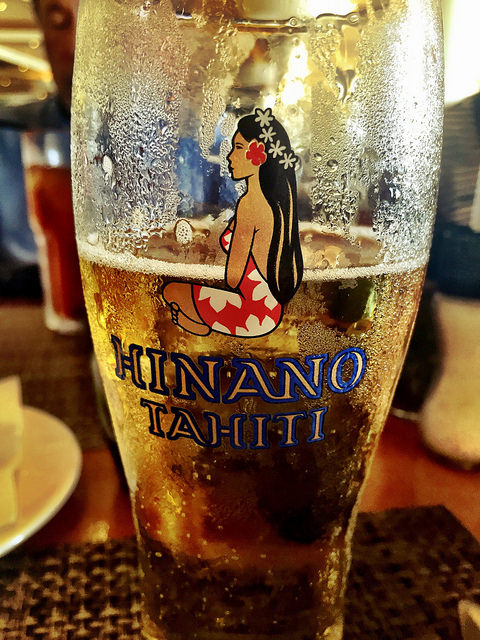Violence in the home is a worldwide issue, especially for people concerned about developing more peaceful societies. Thus, a report last week on the rise of domestic abuse among the Tahitians suggests the value of a review of the history and cultural values which inhibit such violence. Or at least, which used to inhibit it.

According to an insightful article by Levy (1978) entitled “Tahitian Gentleness and Redundant Controls,” Western visitors to Tahiti in the 18th and 19th centuries reported that the Tahitians were gentle and peaceable to one another. The exception occurred during the early 19th century, about 1810-1820, when there were reports of heavy drinking and violence, which were evidently caused by the recent arrival of Protestant missionaries and the stresses of a transition to new, Western-influenced social patterns. Changes were hard to adjust to. Things soon returned to the old, gentle ways, however.
In that article, Levy went on to describe the conditions of violence prevailing in Tahiti while he was there doing his fieldwork, from 1961 – 1964. Careful observations at two Tahitian communities during that period showed that they had few problems with hostility. People displayed very little anxiety, stress, or physical or muscular strain. They had few psychological problems such as self-punitive depression, hypochondriasis, or fantasies of destructiveness. The author concluded that the Tahitian people dealt with hostility without it becoming a problem, since it was not manifest at the visceral-autonomic, voluntary muscular, or psychological levels.

The physical and cultural environment on Tahiti had a lot of influence on the gentleness of the Tahitians, the anthropologist argued. Adaptations in the villages to the natural environment minimized external frustrations—food and other needs were plentiful and easily available. Their culture also served to reduce frustrations. For instance, they did not believe that they had any control over nature or over the behavior of other people; in fact, they thought that trying to change the nature of reality inevitably causes a rebound that destroys the initiator. The people were optimistic but passive, a condition produced by socialization and reinforced by other practices and values in their society. Their universe was less frustrating cognitively than one where individuals are conceived of as able to change things.
A number of factors in Tahitian culture affected the socialization and informal education which produced gentleness in the people, Levy (1978) wrote. Marriage relationships were relatively free of anxiety. In his major book on the people, Tahitians: Mind and Experience in the Society Islands, Levy (1973) wrote that he was aware of very little violence occurring while he was there. He observed that there was little even when people were drunk. “With the exception of a few incidents … people are as unhostile drunk as sober,” he wrote (p.284).

There was, however, somewhat more violence in domestic settings, where alcohol was involved. Men did sometimes return to their homes drunk and begin arguments that occasionally led them to hit their spouses or their children. But Levy (1973) did cite statistics of murders and of total crimes committed in French Polynesia during selected years from 1900 through 1959: for several of the dates, there were few if any figures in either column.
However, the situation changed dramatically by the turn of the century. A study by Jaspard, Brown and Pourette (2004) was based on a survey which discussed the issue of intimate partner violence in French Polynesia in culturally specific terms involving such issues as the role of alcohol, the economic relationships of men and women, and the presence of other family members. The report by the three authors pointed out that violence within the family in French Polynesia had become a major social concern.
And that’s the substance of the news story last week—domestic violence among the Tahitians has become even worse. It is now widespread in the overseas territories of France, especially in French Polynesia. The rates of abuse in Tahiti far exceed those of France itself, according to a government report given to the ministry of the overseas territories on Tuesday last week. The study, commissioned in 2016, found that one of the major causes of domestic violence in Tahiti has been the loss of employment among men. This fact was repeatedly cited by interviewees as an important factor in the rise of violence against women.

The authorities in French Polynesia have been trying to help stem the violence through such means as producing video clips and television spots, holding forums, printing posters and the like. They have also organized meetings aimed at preventing violence and assisting victims.
Furthermore, legal protections are being implemented in the territory. As of 2012, women who are in danger of abuse can apply in a family court for a protection order from a judge. In 2015, 14 requests for protection orders were made; in 2016, the number had jumped to 38. Court orders to expel a violent person from a household can also be requested, though the Multipurpose Association for Legal Action indicates that this measure—evicting a violent spouse—is not requested very often in Tahiti.
It is sobering to reflect on the fact that a society which experienced only occasional episodes of domestic abuse barely 50 years ago could have changed so dramatically and so quickly.